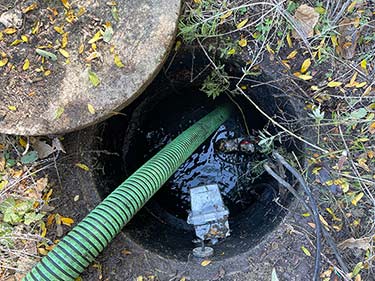
Why is the importance of septic tank maintenance crucial? If you live in a place that doesn’t have a city sewer or your home is too far away to be connected to the municipal sewer, you might have a septic tank. Septic tanks are the sewage-treatment method for homes in rural or semi-rural areas and other remote locations, explains Limestone Country Management.
Unlike homes linked to a central sewer system, houses with septic systems need to be more careful about managing the home’s sewage treatment systems. A failed septic system is one of the worst emergencies in your home.
A few of the undesirable things that can happen with septic system failure are raw sewage oozing into your home from the drains, the odor of raw sewage around the property, or contamination of wells and water bodies. But all these can be prevented with a bit of care.
Regular septic system maintenance is vital for the proper function of the tank, the health of your family, and the protection of the natural environment. In this post, we look at the reasons to maintain a septic system and the dos and don’ts of septic tank maintenance.
Why you should maintain your septic tank
Greater efficiency and lower costs
Adopting a proactive approach that relies on detecting faults in the system before they become significant issues will let you save costs while improving efficiency. Reactive maintenance, on the other hand, waits until there are problems before taking action.
When maintenance is proactive, it is ongoing; this program will help you avoid the cost and headache of unexpected problems leading to a system shutdown. You will be able to save money in the long term.
Better air quality
All septic systems produce odors. The odors’ strength depends on the year’s season, the amount of rainfall, and the temperature. But odors are minimal when the septic tank is in good condition. A well-maintained septic system will easily pass the “smell test” – that is, odors from the septic tank are so insignificant that they can go unnoticed. This is possible because most cases of persistent and lingering odors from a septic system come from maintenance issues like clogs or burst pipe emergencies.
Prevent toxic hazards
Periodic inspection and proper septic tank maintenance can prevent issues leading to septic tank backup or overflow and ground contamination. If any of these problems are allowed, the septic tank can release untreated wastewater into the soil, nearby wells, water bodies, and the surrounding area.
This will subject everyone in the vicinity – humans, and animals – to the risk of illness. If untreated wastewater finds its way into groundwater, it is even more devastating.
Increase property value
When it is time to sell your home, a record of thorough and timely maintenance of the septic system can help you attract more attention from buyers and ask for a higher price for the property.
Buyers want proof that an owner has conscientiously looked after their home since they will have fewer maintenance issues when moving in. Buyers are willing to pay more for a home where there are no unpleasant surprises, one where they can have peace of mind.
The dos and don’ts of septic tank maintenance
If you want the best performance from your septic system, here are a few things to keep in mind:
Dos
- Location – Know the physical location of the septic system and its components. Mark the access points clearly to make it easier for you or anyone else to access the system.
- Avoid harmful products – Caustic cleaners, bleaches, and antibacterial effects (including soaps) that work with traditional sewage systems will harm your septic system.
- Laundry – Doing too much laundry at a time can overwhelm your septic system. Spread out your laundry to avoid flooding the system; do only one load of laundry per day.
- Use a digester – To keep the septic system healthy, periodically add a digester to the tank to improve the bacterial breakdown process and extend the time between pump-outs,
- Educate your guests – Let visitors know how to use the system safely and what they should not flush into the septic tank. Signs and plaques will help you do this easily.
- Scheduled inspections – Septic tanks need to be be pumped and inspected to keep them flowing. Inspections should be yearly. The septic tank should be pumped every 3-5 years.
Don’ts
- Forbidden items – The only things you want going into your septic system are human waste, toilet paper, and water. Items like wipes, pills, feminine hygiene products, coffee grinds, etc., will harm the system.
- Avoid plants – Do not plant trees or bushes near or around the septic field, as this can lead to problems. Plant roots can spread to the lateral lines and the septic tank, damaging them.
- Avoid driving on the leach field – Do not drive or park vehicles on the leach field. Heavy pieces of machinery should also be avoided. Do not build anything on the leach field.

